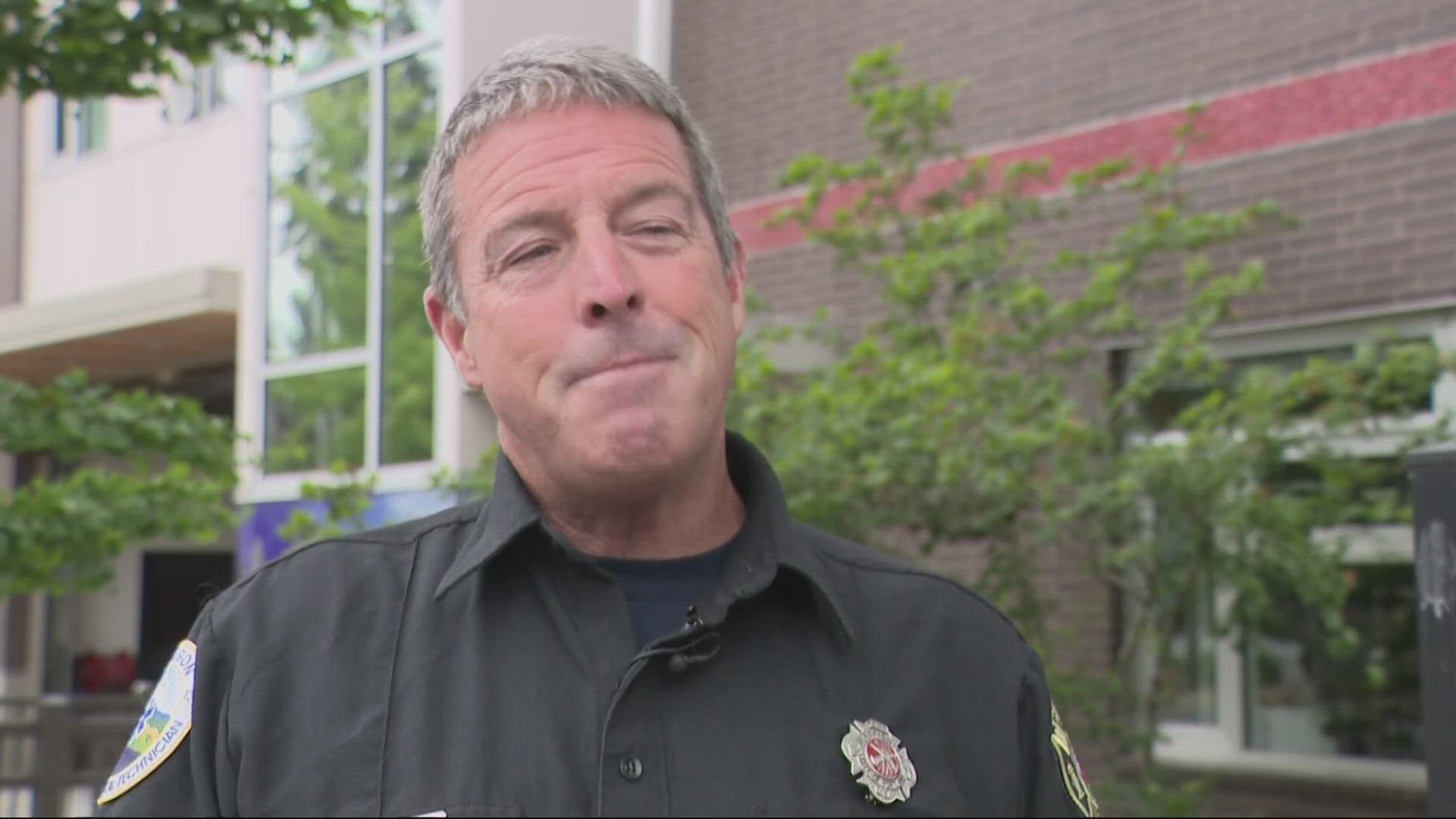PORTLAND, Ore. — Multnomah County has declared a state of emergency this weekend as a days-long heat wave is expected to impact the region.
The state of emergency is in effect from noon Friday, July 5 through noon, Monday July 8.
The National Weather Service has issued an Excessive Heat Warning Thursday through Sunday for much of Oregon. Temperatures are expected to be in the high 90s on Thursday and surpass 100-degrees on Friday, Saturday and Sunday.
For many, the record highs will be uncomfortable, but for others — like older adults, young children, people who work and live outside, and those with medical conditions —the heat could be dangerous.
"Any sort of individual that has any sort of threshold or difficulties with heat — they've got to be aware that it's coming," said Rick Graves with Portland Fire & Rescue. "Do so, by making sure that you're hydrated. If you're planning on activities, try planning those in the morning — rather than the afternoon and early evening when we're going to have peak heat. Get yourself taken care of and just ready to relax and rest, during the extreme hot times during the day."
Multnomah County said it's preparing to open cooling centers, but has not announced locations or dates yet. It said it would announce hours of operation the morning before the centers open.
A county spokesperson told KGW they have been talking daily with the National Weather Service and more than 140 staff, including agencies like TriMet, to discuss a decision on whether to open shelters.
“We’re preparing for a long, very hot weekend, and you should, too,’’ said Chris Voss, the County’s director of Emergency Management. “We’re lining up locations for cooling centers, recruiting staff and developing plans. Everyone should be thinking about how they can keep themselves cool, and making plans to support friends and family who might need help.”
Over the last couple of years, the city has installed more than 9,000 air conditioning units to low-income households across Portland. It's been a game changer for vulnerable populations.
However, this week, don't rely on this program if you're seeking out an AC for this heat wave. Earth Advantage, the distributor, told KGW, that "given the popularity of the program, applicants may be scheduled for installation later in the summer or early fall." They explained that their distribution partners are working as quickly as possible to process applications and schedule installations, giving priority to those with multiple risk factors.
"This is not emergency response program, this is a climate resilience program," said Jaimes Valdez with the Portland Clean Energy Community Benefits Fund last week. "If there is an extreme heat event — the city, the county and other partners have other approaches to deal with the emergency response."
Meantime, organizers of outdoor events — like the Waterfront Blues Festival downtown, are thinking ahead.
"We of course, have been paying attention to the weather forecast and want to do everything we can within our control," said Christina Fuller, the festival director. "We'll have free water refill stations at the festival. We have misting stations, back by popular demand. We're working with the Marriot across the street, and they're opening up their second floor to be a chill center for our fans."
She said those fans can also bring personal-sized umbrellas, and empty or factory-sealed water bottles to the festival.
Officials also stressed knowing and understanding the signs of heat exhaustion and heat stroke. Heat exhaustion symptoms include: heavy sweating, cold, pale and clammy skin, a fast, weak pulse, nausea or vomiting, muscle cramps, dizziness and a headache to name a few. Some signs of heat stroke — which is more serious, include a high body temperature (of around 103 degrees or higher), hot, red, dry or damp skin, a fast, strong pulse, headache, dizziness, confusion, and even losing consciousness or passing out.
A heat stroke is considered a medical emergency and you'll want to call 911 right away.
If possible, it's best to stay indoors, in air conditioned spaces. The Oregon Health Authority (OHA) recommends limiting exposure to the sun from 10 a.m. to 6 p.m., and avoiding direct sunlight. OHA also suggests using portable electric fans to push hot air out of rooms, or draw in cooler air — but cautions Oregonians not to rely on a fan as a primary cooling device.

